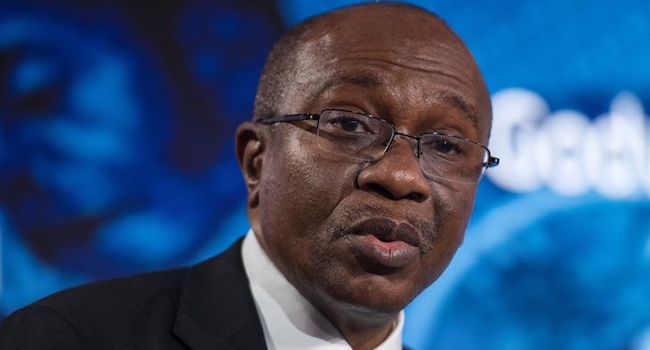News
I schooled in Nigeria, parents should allow kids do same —CBN’s Emefiele criticises forex applicants

The Governor of the Central Bank of Nigeria (CBN) Godwin Emefiele, has criticised parents requesting for foreign exchange to send their children to study in junior and high schools abroad.
Emefiele said during his teenage years, he schooled in Nigeria, attending primary, nursery and secondary schools, but parents now want to send their children to foreign schools equivalent to them.
He wondered why Nigerian parents will prefer their children studying in 7th, 8th and 9th Grade [equivalent to JSS1, JSS2 and JSS3 in Nigeria], as well as 10th, 11th and 12th Grade [equivalent to SS I, SS 2, and SS 3] abroad.
The central bank chief’s criticism was a response to CBN’s forex policy which only makes foreign currencies available to tertiary education fee, leaving junior and high school students’ guardians or parents to source for FX in the black market – which is costly.
“I was born in Nigeria, I went to primary school in Nigeria, I did my secondary school in Nigeria, university in Nigeria – indeed, people were coming from other parts of the world to attend universities in Nigeria.
“What has happened that we would now begin to think about our children going to school, secondary school, abroad. I think, this is not about the popularity contest, it’s about the fact that if you can afford it, good for you.” Emefiele told Arise TV during an interview on Tuesday.
READ ALSO: CBN moves to recover unpaid Anchor Borrowers’ Programme’s N463bn loan
He stated that it reflected the standard of education within the country, and it needed to be improved, “I think what should be done is to improve our educational standard, educational institutions, so that we can go to secondary school in Nigeria.
“And when we begin to achieve that, then I will begin to think that Nigeria is coming back to the Nigeria of my birth.” Emefiele added that, “I’m sorry, I may not have answered your questions the way you want it, but this is the truth.”
Nigeria’s foreign reserves is settled around $42 billion, as the country battles to improve the base following a global trade shutdown induced by COVID-19 pandemic, which cut the inflow of forex into the Nigerian financial system.
Part of Emefiele’s policy was to limit the availability of FX for tertiary level education, scrutinise businesses, and add sugar to an FX restriction list that already had over 41 banned items.
Join the conversation
Support Ripples Nigeria, hold up solutions journalism
Balanced, fearless journalism driven by data comes at huge financial costs.
As a media platform, we hold leadership accountable and will not trade the right to press freedom and free speech for a piece of cake.
If you like what we do, and are ready to uphold solutions journalism, kindly donate to the Ripples Nigeria cause.
Your support would help to ensure that citizens and institutions continue to have free access to credible and reliable information for societal development.






















